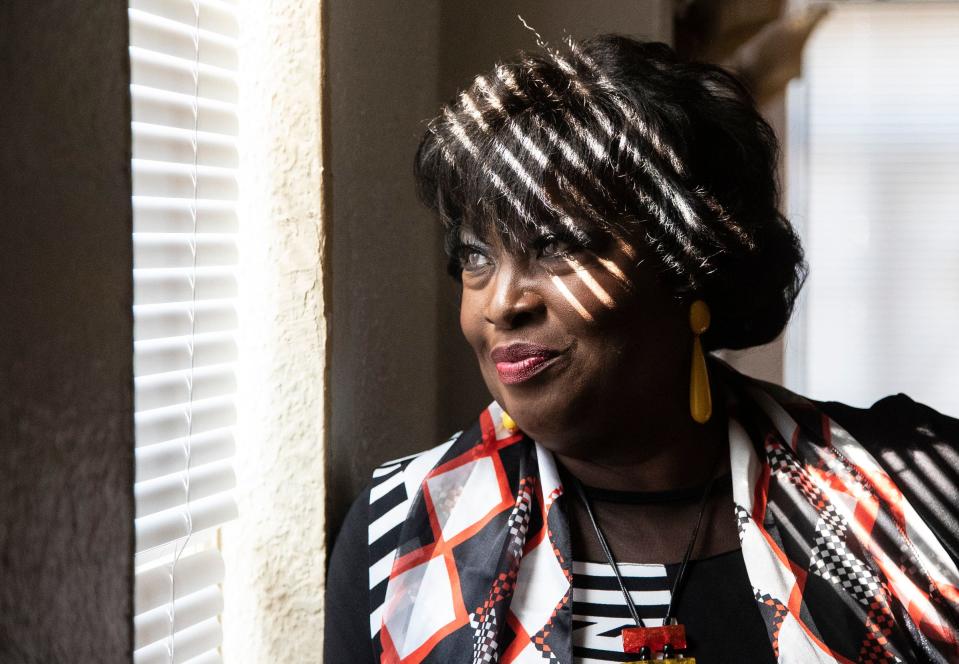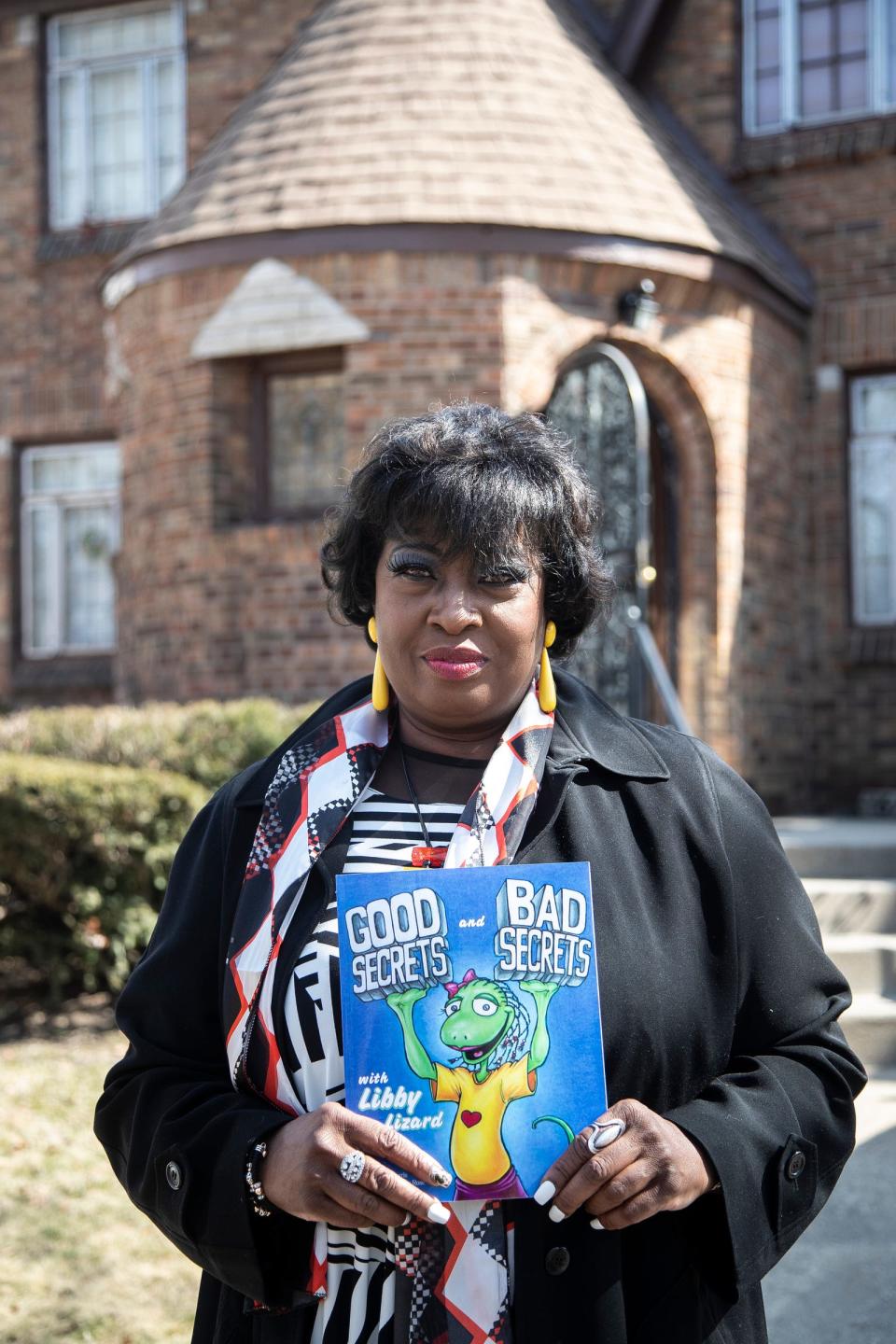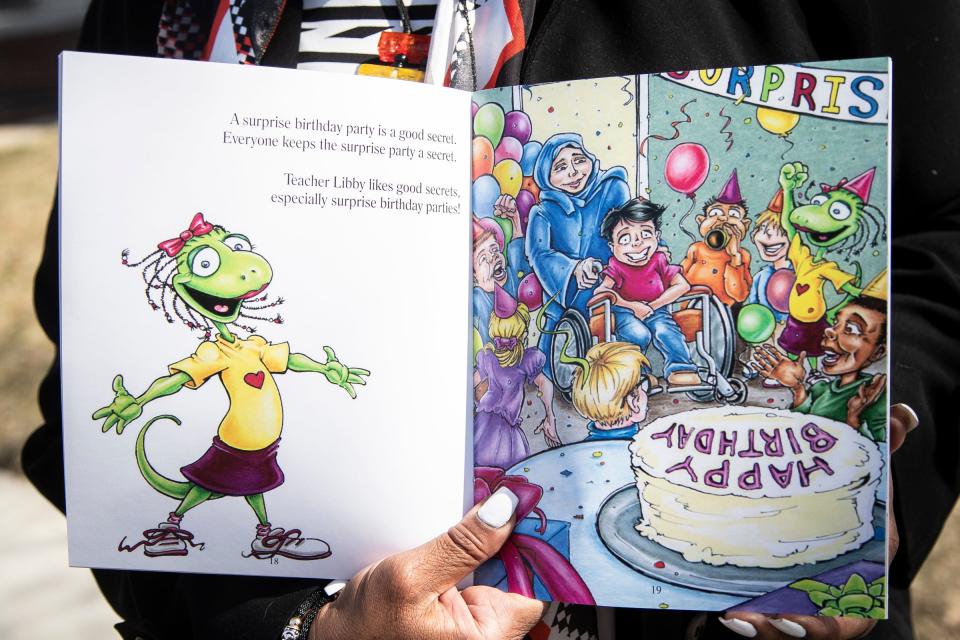She kept quiet for 30 years. Now, Detroit author wants kids to tell bad secrets.
It happened on a summer day when Toni McMorris was 16 years old — the first day the Cass Tech student’s mother had allowed her to drive herself to work instead of getting dropped off. McMorris arrived for her shift at Burger King to find out the “creepy boss” was managing the restaurant that day, the one whose lovely wife had interviewed and trained her but who all the girls whispered about and avoided.
When the manager lured McMorris into his little office later that day and closed the door, her screams and cries were muffled by the din of the full fast-food joint. McMorris managed to fight him off and escape, running straight to the car that waited — serendipitously, mercifully — just outside to take her home to her mother.
The crime left McMorris hurt, shaken and ashamed. But instead of confessing what had happened, she ran upstairs to her room and cried alone. She didn’t want to upset her mother, whom she’d watched bear the burden of grief after her husband had died at the age of 36, when McMorris was only 9 years old. What if she’s angry at me? McMorris thought. Or worse, what if she’s angry at him and goes off to do something and gets hurt?

Meet Libby, the healing lizard
“I just said, 'hold onto it, it’ll be OK,' ” McMorris said. She stuffed the secret down so deep that before long, even she wasn’t aware it had ever happened. She kept it buried for 30 years.
Living in a new city with a new husband, a middle-age McMorris was catching up on one of her favorite television shows, "Law and Order," when a scene involving a young fast-food worker victimized by her manager brought the traumatic experience flooding back to her. McMorris sought counseling and therapy.
But her healing journey really took off when she came up with the lizard.
McMorris created a friendly, green, smiling lizard named Libby to deliver the message to kids: Bad secrets need to be told.
In a picture book McMorris wrote and had illustrated, then animated, Libby the Lizard explains to children that some secrets are nice, like a secret name for a teddy bear, a secret spot for a piggy bank or grandma’s secret recipe for chocolate cake.
Then there are bad secrets, Libby tells kids. Bad secrets are about things that are sad, scary or dangerous.
The secrets Libby points out include using bad words or bad touches, stealing or fighting, lying, covering up accidents or mistakes or hurting anyone or anything, including yourself.
More:US Rep. Scholten demands action on child labor exposed in NYT investigation
More:Detroit sex trafficker who ran house of horrors gets life in prison

"Catastrophic' numbers of children suffer abuse
Libby’s message could be relevant for a horrifyingly large number of children. One out of every 4 or 5 girls and about 5% of boys will be sexually abused before their 18th birthday. One-third of the victims are younger than 11.
"It's catastrophic," said Melanie Richards, director of Kids-TALK Children's Advocacy Center. She says in 90% of cases, abuse comes at the hands of someone the family knows. "This makes everything super complex, because they're going to have relationships with these people, and it's just another layer that the child has to navigate."
Secrecy is a common tool used by adults grooming kids for sexual abuse. "Sometimes people tell children, you can't tell, you're gonna get in trouble, I'm going to get in trouble, no one will believe you," said Richards.
The consequences of abuse can be profound and long-lasting, and those who keep quiet often fare the worst. They are at greater risk for psychological, emotional, social and physical problems that can extend into adulthood. And most children fall into this category; one study showed the average age for disclosing child sexual abuse and assault was 52.
Having access to a trusted adult is the most important factor enabling children to disclose abuse or assault, followed by awareness that the behavior or actions are not normal. Having a supportive caregiver is also the No. 1 predictor of healing, according to Richards.
Giving children the words they need to talk about abuse
It’s a big task for a lizard, explaining a confusing and nuanced world of potential threats to children who need to know that not all presents are given in kindness and not all adults can be trusted.
But Libby the Lizard makes it easy for children to know what to do with a bad secret. Tell someone. Actually, tell three people. The book includes a chart children can fill out with the names and phone numbers of adults they trust to tell anything.

“The part of what can make abuse traumatic is a being all alone with something that feels completely overwhelming,” said Suzanne Brown, a psychotherapist and associate professor of social work at Wayne State University. “And it's especially true for children who developmentally don't have the emotional skills, interpersonal skills, the cognitive skills to be able to process or make meaning of experiences that overwhelmed them emotionally and developmentally.”
That sense of being alone with something so overwhelming sets the stage for children to develop post-traumatic stress symptoms, Brown says.
“Media like this,” Brown said of McMorris’s book, “has the potential to decrease that sense of isolation, and also to give children words to express their experience to others and to make meaning of that experience.”
More:MSU research puts a new face on who is at risk for eating disorders
More:Michigan's children remain targets of big tobacco
McMorris, through Libby the Lizard, is giving children important and useful information about what to share and with whom. But Brown says even the act of reading this kind of book together can help keep kids safer.
“If it facilitates the engagement of the child with a trusted adult around that material, that can be such a protective factor, because it’s relationship-building,” said Brown.
“Many caring adults want to have conversations with children about difficult topics like abuse, but parents don't know where to begin either, or what kind of language to use, or how to engage a child around these topics.”
After 3 decades, sharing the secret lifted a burden
Experts agree that talking with children early and often can help protect them. "We teach children what to do in a tornado, what to do in a fire," Richards pointed out. Statistically speaking, they're much more likely to face abuse or assault.
“Good Secrets and Bad Secrets With Libby the Lizard” has been used in a couple of church-based after-school programs and as part of a reading program at Inkster Academy, a charter school that presented the book to children as part of a seven-week curriculum.
McMorris says it was the perfect fit for that school’s Positive Behavioral Interventions and Support program. She hopes the book and the animated version can be used in more schools, and she’d like it to be translated into different languages. In the future, she’d like Libby to become part of a larger child safety campaign.
McMorris did eventually tell her mother what happened to her that day decades ago. And all those years later, she says telling the bad secret was like taking a breath of fresh air.
“My God, what a burden that was lifted from me.”
If you think a child is being physically or sexually abused, report it immediately to law enforcement or Child Protective Services by calling 855-444-3911. The line is open 24/7 and reports may be made anonymously.
Jennifer Brookland covers child welfare for the Detroit Free Press in partnership with Report for America. Make a tax-deductible contribution to support her work at bit.ly/freepRFA. Reach her at jbrookland@freepress.com.
This article originally appeared on Detroit Free Press: Toni McMorris pens 'Good Secrets and Bad Secrets' picture book

